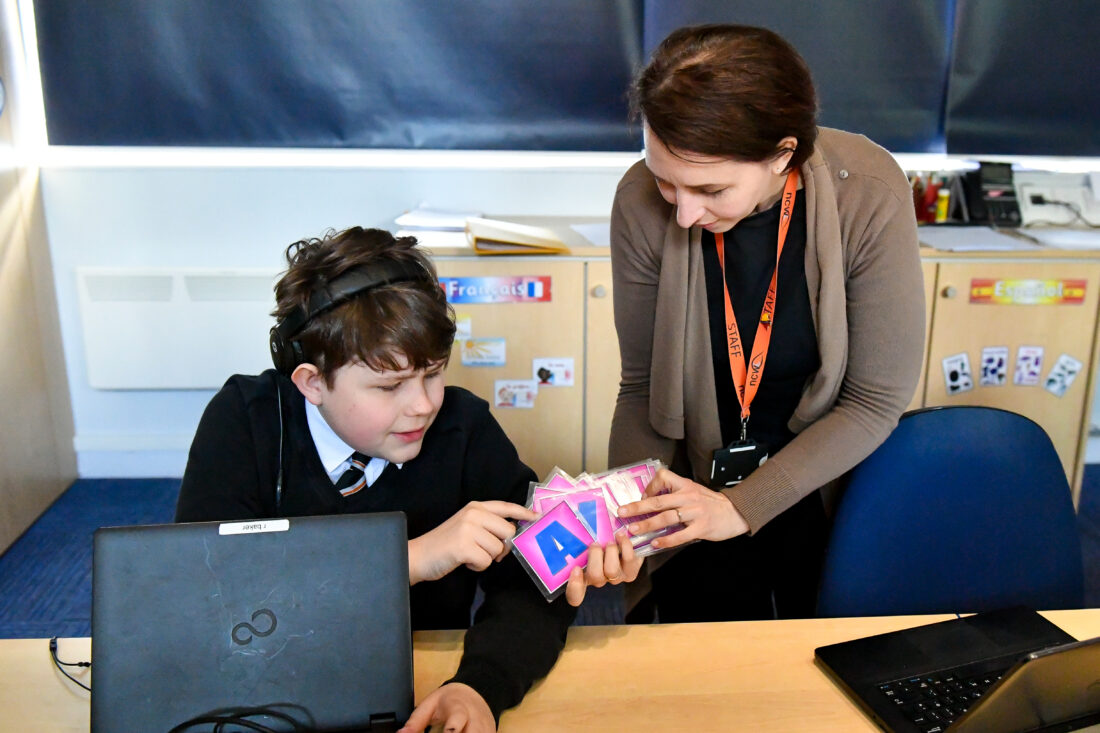We feel passionately that learning a foreign language enriches the curriculum and provides students with excitement, enjoyment and challenge.
When we introduce students to the languages and cultures of others we help to create an environment in which they learn to respect the diversity of the society and the world in which we live.
In the Modern Foreign Languages Department our objectives are:
- To add an international dimension to students’ learning
- To promote an interest in learning other languages
- To develop an appreciation of the diversity of languages
- To develop a better understanding of their own mother tongue
- To help develop awareness of cultural similarities and differences in other countries
- To develop the four skills: Listening (and responding), Speaking, Reading (and responding) and Writing
- To support students to understand and communicate in a new language
- To make connections in their learning with other curriculum subjects
- To lay the foundations for future study and life-long language learning
In class we aim to inspire our students through interesting topics and an array of engaging teaching techniques. We use specially adapted resources that enable our students to be independent language learners and encourage the use of the target language at every opportunity.
We pride ourselves in the extensive extracurricular opportunities we provide for our students to be partnered with students in schools in Germany, France and Spain, as well as our long-running trips to these European countries.
MFL Schemes of Work
In MFL the implementation of our ambitious MFL curriculum, as explained in the MFL curriculum intent document, happens through a sequence of schemes of work and a series of additional activities. MFL Schemes of work are conceived and delivered in a way that all students can experience success in languages because there is a logical progression building on students’ previously acquired knowledge and skills. MFL Schemes of work translate into lessons with clear objectives which are shared with students and where our students’ individual requirements are catered for in our drive to promote the knowledge, understanding and skills of our students as citizens of the world.
We understand the importance of having all stake holders involved in the students’ learning journey in MFL and therefore we share our curriculum overview with parents/ carers, NCW house parents and relevant NCW staff (e.g. LSAs).
We dually deliver the academic curriculum and aspects of the VI curriculum.
To read about the MFL Curriculum intent, please click the button below:



Examples of adaptations for vision impaired students
In MFL we produce an array of resources to support individual students’ visual needs. Our adaptation of resources encompasses:
- Braille resources.
- Large print resources: Resources in different Arial Bold sizes (coinciding with the sizes provided by exam boards so we train students)
- Electronic resources formatted so that a foreign language screen reader can seamlessly switch between languages. These resources are stored in the student drive (Q: drive) so they are accessible both at NCW and remotely.
- Audio resources. In the student drive we have audio files that can be used for revision (e.g. GCSE pods) or to support the learning in lessons (e.g. task specific listening activities)
Additionally braillists are trained to recognise and use foreign braille accent and letter signs and lap-top users are provided with a copy of our “guide to using IT in MFL” that explains short-key-cuts to writing accents using a laptop, using NVDA (screen reader), using Winamp and how to apply the correct language grammar and spelling. Braillenote users will be shown how to switch language profiles.
Lastly, in order to facilitate independent student’s access to translations whilst at NCW, students have access to smart speakers that have different language profiles available.
Courses
A Level:
- French
- German
- Spanish
GCSE:
- French
- German
- Spanish
FCSE:
- French
- German
- Spanish
Head of Department:



